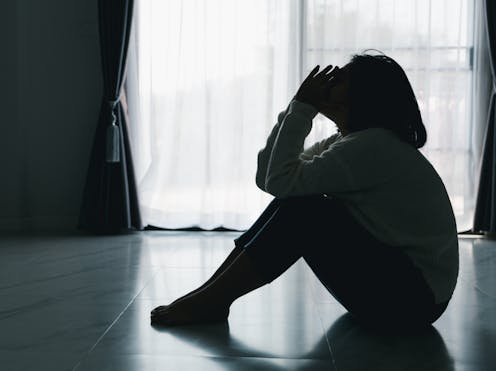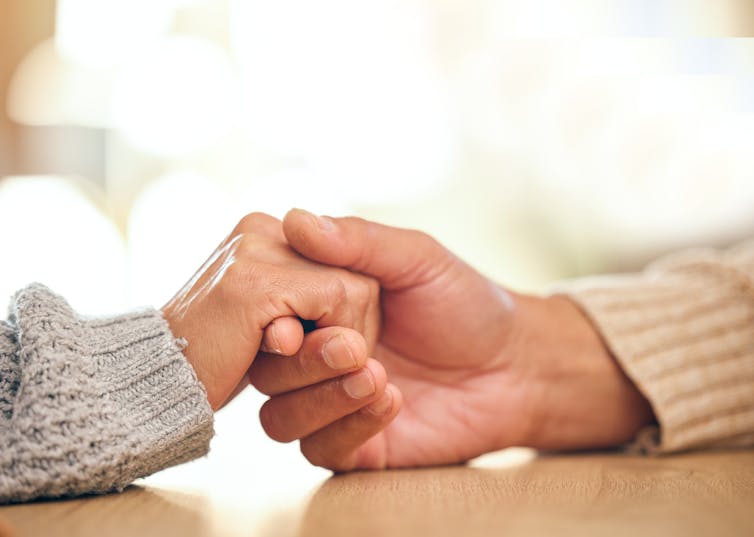
Survivors of sexual abuse in the UK are, sadly, all too familiar with the feeling of being exploited for the gain of others.
They have often been made false promises of love and protection by those who abused them. They have been questioned by professionals who claim to want to hear their stories, but then treat them as curiosities or problems.
They have been stigmatised by police – the independent inquiry into child sexual abuse noted in Rotherham that police dismissed survivors or labelled them “child prostitutes”. And they have felt let down by the criminal justice system, which has repeatedly been unable to prosecute violent sexual offences.
Want more UK politics coverage from academic experts? Every week, we bring you informed analysis of developments in government and fact check the claims being made.
Sign up for our weekly politics newsletter, delivered every Friday.
The recent discourse around grooming gangs is letting them down again. While figures like Elon Musk claim to want to support victims of abuse, this appears to be exploiting survivors’ stories for political points-scoring – and worse, potentially retraumatising them.
Retraumatisation occurs when reminders of traumatic experiences (sights, sounds, words or even smells) trigger the re-experiencing, physically and psychologically, of the abuse. This can amplify and worsen the effects of post-traumatic stress disorder, and set survivors back significantly.
Retraumatisation can lead to mental health crises including suicidal thoughts and actions, self-harm and agoraphobia. It may also reignite substance use or other coping strategies to numb physical and emotional pain.
Talking about trauma
I have spent seven years working with child sexual abuse survivors and the services that support them, including in Rotherham.
My research has looked at the value for survivors when the professionals who support them are better educated about the effects of trauma. Much of this involves adopting a trauma-informed approach in voluntary sector services who work closely with women, as well as in social services and healthcare.
The NHS-commissioned Trauma and Resilience Service in Rotherham is leading this change. Since 2018 it has developed a trauma-informed network of services by providing specialist training and consultation.
I have conducted three independent evaluations of the service and have recently completed another research project exploring the impact of the service on the experiences of survivors and professionals.
The service’s work has made a real impact. Survivors who have historically felt let down or disbelieved are now being listened to. As the below quote illustrates, a trauma-informed approach helps them feel validated and empowered to recognise their trauma as a natural response to horrific experiences.
This quote, from a survivor of child sexual exploitation in Rotherham, describes the support of a professional who consistently and safely showed the survivor care, compassion and dignity, most importantly following up her words with actions.
“At times when I was self-harming, I was slashing my legs, I was feeling suicidal, she actually made me laugh on the phone call that we had! Because we interacted on the phone with each other and she actually made me laugh which was a big relief because there were times, well years, where I felt I couldn’t laugh or smile … I’ve got three children and if it weren’t for her, I wouldn’t be here now.”

Listening to survivors
These positive changes are helping survivors recognise their own strength, resilience and courage. This is particularly important as they move through the criminal justice processes, which can retraumatise victims.
The criminal justice system is rife with barriers for the successful prosecution of perpetrators of group grooming, and indeed other forms of child sexual abuse. For example, trauma impacts memory and recollection, and difficulties recalling events are often seized upon by the defence to undermine survivors’ testimonies.
The independent inquiry into child sexual abuse led by Professor Alexis Jay contains recommendations that can go some way towards improving this. They include expanding the criminal justice system’s capacity to respond to child sexual abuse, and to support and empower survivors to seek justice without experiencing further trauma.
Read more: I research child sexual abuse. We need action to help victims – not another inquiry
This inquiry has given survivors a voice, and its recommendations must not be ignored. Survivors in Rotherham, Rochdale and beyond have had too many years of being asked for their stories, summoning the courage to revisit their traumatic pasts, promised change and action, only to be overlooked and exploited again.
If we are genuinely concerned about prevention, we must invest more into trauma-informed support systems, such as Rotherham’s flourishing Trauma Network. These systems help survivors manage the symptoms of their experiences, and to re-evaluate and rebuild their relationship with themselves and their loved ones.
There are very real opportunities for change at hand. They must not be sidelined in favour of the incendiary narratives around political culpability and race that are dominating the conversation now.
Rebecca Hamer does not work for, consult, own shares in or receive funding from any company or organisation that would benefit from this article, and has disclosed no relevant affiliations beyond their academic appointment.
This article was originally published on The Conversation. Read the original article.







